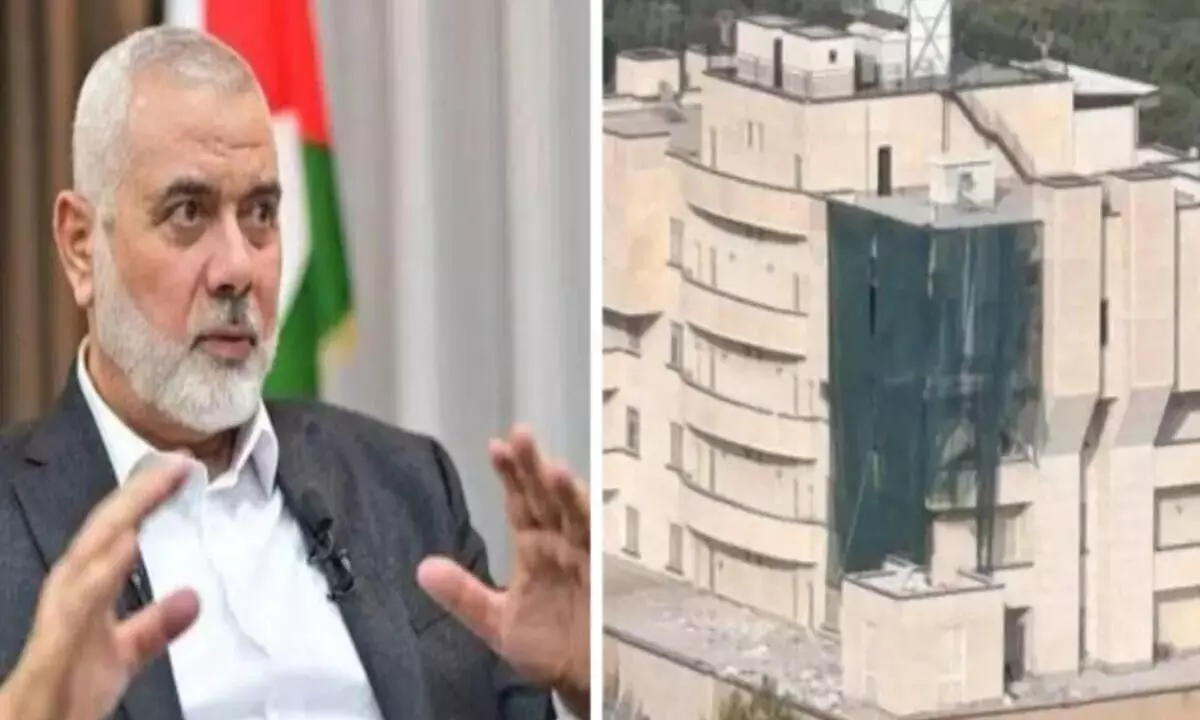
Bomb planted two months earlier detonated after confirming Haniyeh’s presence
text_fieldsThe assassination of Hamas’ political leader Ismail Haniyeh is still unclear as for the methods used, as there is no concrete evidence to prove the mode of operation. However, some reports from Middle Eastern officials claim that a well-executed plan was reportedly set in motion two months ago. The attack took place at a guesthouse within a heavily guarded compound known as Neshat, located in an upscale northern neighbourhood of the Iranian capital.
According to multiple Middle Eastern sources, including two Iranian officials, the explosive device used in the assassination had been secretly planted in the guesthouse approximately two months prior to the attack. The guesthouse managed and secured by Iran’s Revolutionary Guard, was hosting Haniyeh for the inauguration of Iran’s new president.
The bomb was detonated remotely once Haniyeh was confirmed to be inside his room. The explosion not only killed Haniyeh but also claimed the life of one of his bodyguards. The blast caused significant structural damage, including shattered windows and the partial collapse of an exterior wall, as reported by Iranian officials and supported by photographs of the scene.
The assassination of Haniyeh, who had been a pivotal figure in Hamas and a key negotiator in cease-fire talks with Israel, has aggravated the already volatile situation in the region. Both Iranian and Hamas officials have accused Israel of orchestrating the attack, a claim that some U.S. officials have supported.
However, Israel has not officially acknowledged responsibility for the operation, but going by past history, neither the Israeli government nor its espionage network Mossad are known to acknowledge such lethal operations. In the immediate aftermath of the attack, Israeli intelligence briefed Western governments on the details, although Israel's role remains unconfirmed publicly.
The speculation initially centred around the possibility of a missile strike, similar to previous Israeli operations, but it was later clarified that the device was planted inside the guesthouse. This breach in security, despite the compound’s strict safeguards, represents a significant failure for the Revolutionary Guard. The attack’s precision and planning have been compared to the 2020 assassination of Iranian nuclear scientist Mohsen Fakhrizadeh, which involved advanced remote-controlled technology.
Following the blast, Iran’s Supreme Leader, Ayatollah Ali Khamenei, was quickly informed and convened an emergency meeting with the Supreme National Security Council. In response to the assassination, Khamenei issued orders for retaliatory measures against Israel, heightening the risk of further conflict.
The timing of the attack, coinciding with Iran's presidential inauguration, added to the shock and complexity of the situation. Haniyeh had been present at the inauguration ceremony the day before, where he appeared visibly pleased and engaged with the newly sworn-in president.























